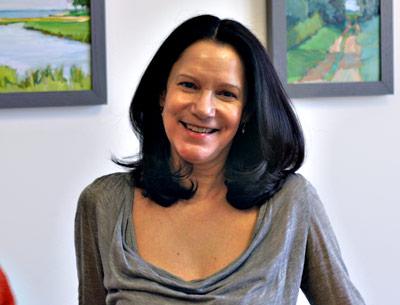The Discontented

"Reports"
Kathryn Levy
New Rivers Press, $14.95
If writing is indeed therapeutic, then Kathryn Levy, having written “Reports,” a collection of poems published this year by New Rivers Press, must be feeling fine. This collection looks unflinchingly at aging and mortality, consumerism and conformity, but, like any good work of art, may leave readers feeling as uncomfortable and anxious as the speaker Ms. Levy creates for her poems. Reading this collection seems a lot like talking about life insurance and final arrangements, disconcerting but absolutely necessary.
Ms. Levy creates this effect artfully. The poems of “Reports” are, for the most part, identically structured. Because Ms. Levy eschews punctuation — excepting the Dickinsonian dash — the short lines, comprising four to seven syllables, speed down the page. Ms. Levy rarely end-stops a line, and her syntactical units seamlessly elide one into another, creating a hurried, hectic pace perfectly suited to the psyche of the poems’ voice, a feminine consciousness perplexed by the future inevitability of her own demise and by the expectations placed upon her while she’s alive.
In fact, “Reports” is an edgy book bristling with anxiety. Ms. Levy’s speaker is at times frightened, disenchanted, angry, cynical, and unhappily resigned: “I look at my face / lined and falling — where / will it go?” (“The Bill Collector”); “— don’t let them break in / the doctors with the tests / or the years and the years still / waiting to harm —” (“Bed Time”); “I / stare in the mirror at one more death, just / waiting to happen” (“Goodbye”); “we are the birds / poised always one / second from plunging / away from all” (“We”).
One could continue to quote such lines from throughout the book, and they all combine to lend this collection its discontented, somber tone.
Despite the volume’s negative tone — or maybe because of it — Ms. Levy’s poetic skills shine. She’s best, it seems, at the art of closure. Poem after poem in “Reports” ends memorably, the final lines resonating long after the poems conclude. In “Precarios,” Ms. Levy writes about a child who learns that he too will one day die, and she finishes with:
hold on to your wrist
to feel the blood
pounding through —
wave after wave of that
precarious ocean that
unlike the ocean
must stop
And in “The Middle Way” the speaker says:
— instead of returning
in a trance to the mirror
where nothing
but death stared back — the worst
kind of death
the kind that goes on
and on
Of course, wrenching these conclusions from the context of the rest of the poems is unfair. But take my word for it: These endings are often surprising, stunning, and powerful.
“Reports” is made up of four sections: “Driving All Night,” “The Lovers,” “The Middle Way,” and “Bedtime Stories.” The last two appear the strongest. As a title, for instance, “The Middle Way” suggests ease and conformity, but the poems ask at what price to one’s soul do we achieve this complacency and blend in. The speaker in this section is wounded by “the middle way,” confused, and feels keenly the effects of compromise, the effects of consumerism.
In “A Wonderful Life,” the speaker indicts our participation in capitalism as consumers:
. . . And the men with the gold
bars in their pockets? They are
laughing at a dinner, mumbling at the bedside
of another friend who is dying — and
gripping the bars as tightly as they can: In
this world you have to survive.
-- For what? pleads the night air -- For
what?
In “Birthday Time” the speaker refuses to conform to societal expectations. Several stanzas begin with italicized demands — “Time to come in,” “Time for school,” “But it’s birthday time,” and “This is marriage time” — all of which Ms. Levy follows with negative imagery, suggesting the speaker’s disdain for parental authority or the social markers denoting the passages in one’s life, and the poem ends with the speaker’s defiance, “I just won’t.”
The section “Bedtime Stories” offers poems metaphorically concerned with the dead and dying. In “Got to Get Back,” the speaker expresses a wish to return to her youth, perhaps to undo her own birth. But in the book’s final poem, “Reports,” we get Ms. Levy’s only optimistic note, and it is strategically placed. The speaker declares in the poem’s final lines that all she has (and all that we have) is one choice, “Begin.”
With this one-word paradigm of hope and the wish to persevere, Ms. Levy avoids the wallow of despair, lifting both speaker and reader above the existential crisis. “Begin” suggests action, and Ms. Levy allows her readers to believe that her speaker, troubled by mortality and the apparent senselessness of living, will finally stop staring with incredulity at the “cracks” in her face and once again try to live.
It is a note of grace that confirms what readers will feel throughout the reading of “Reports” — that we have been all along in the company of an articulate and sensitive voice who speaks honestly and without reserve about one of the central mysteries of existence.
—
Dan Giancola is a professor of English at Suffolk Community College. He lives in Mastic.
Kathryn Levy’s previous collection of poems was “Losing the Moon,” from Canio’s Editions. She lives in Sag Harbor and New York City.
